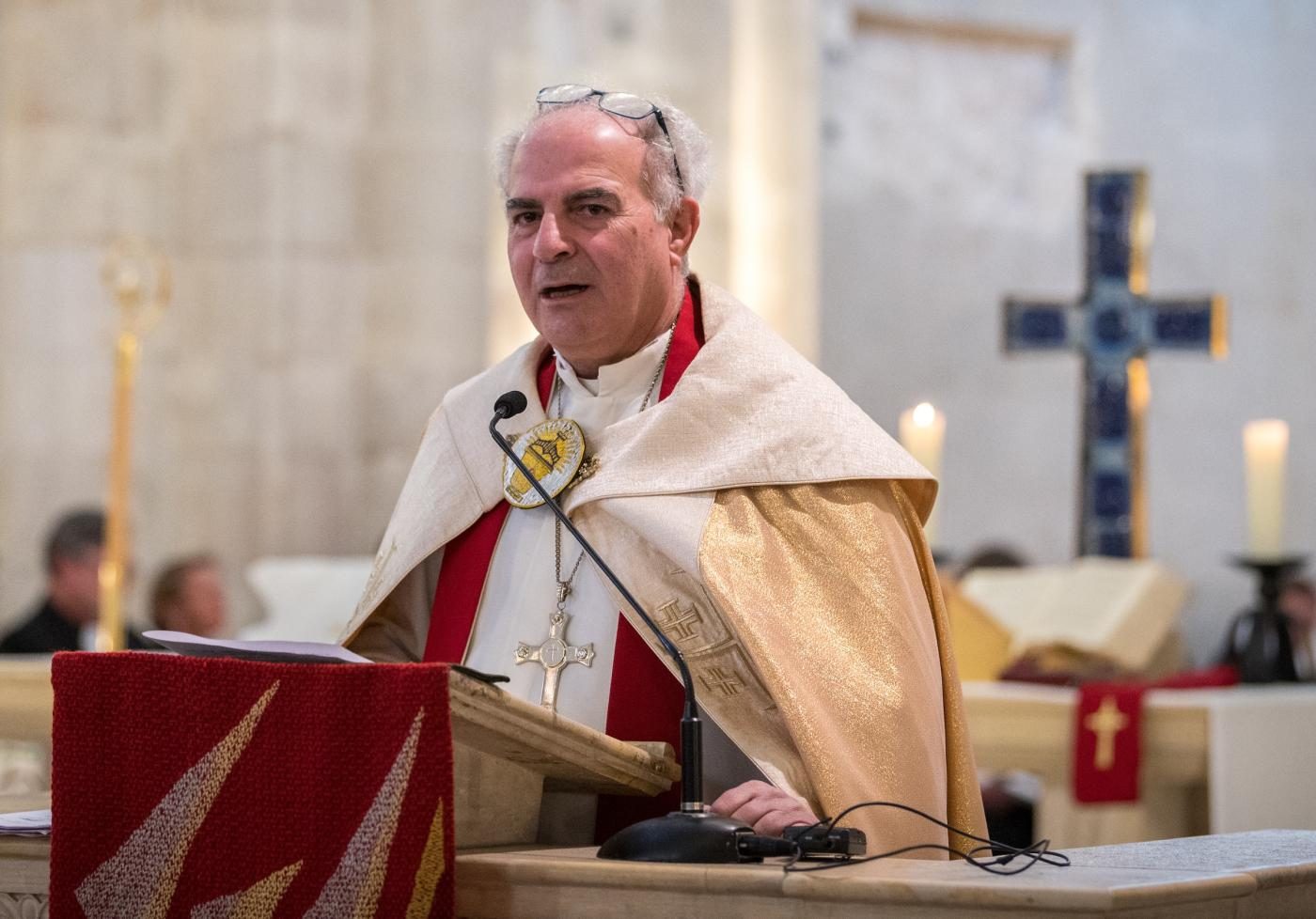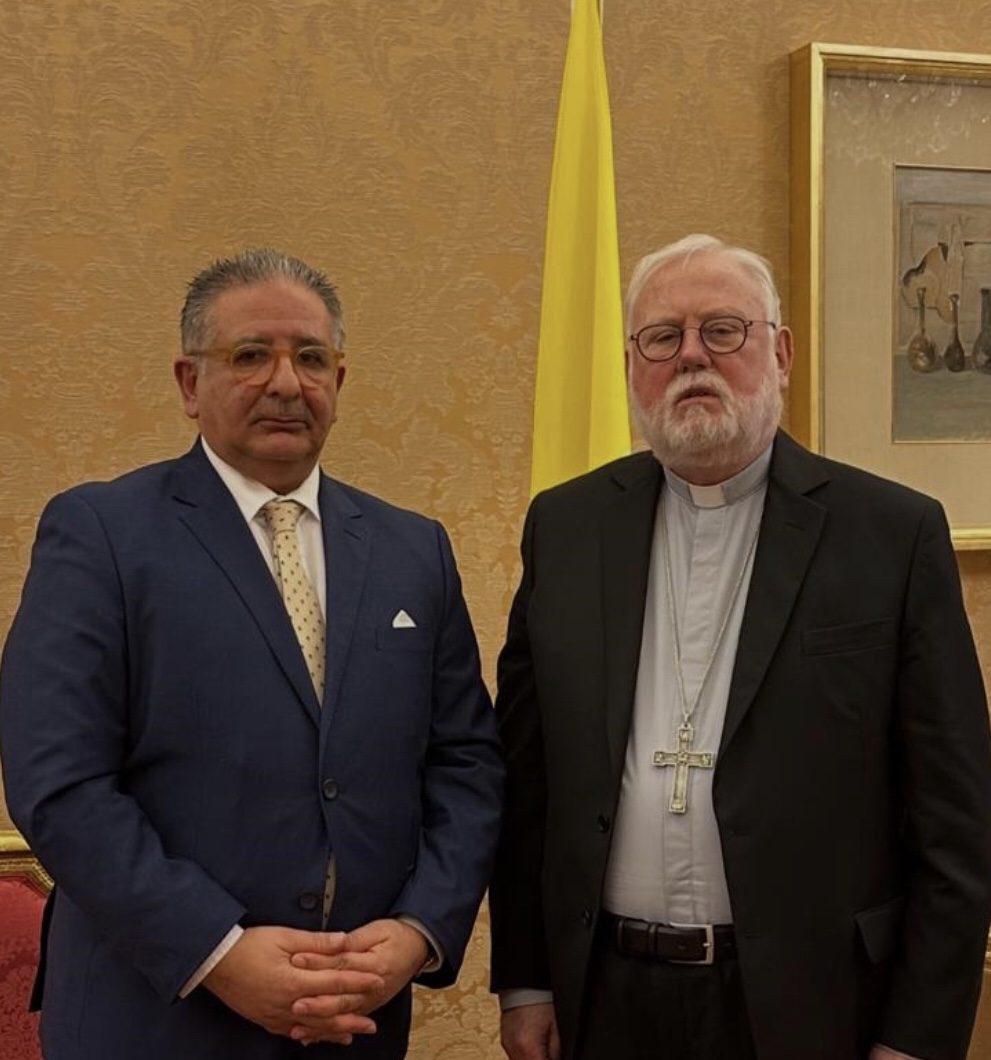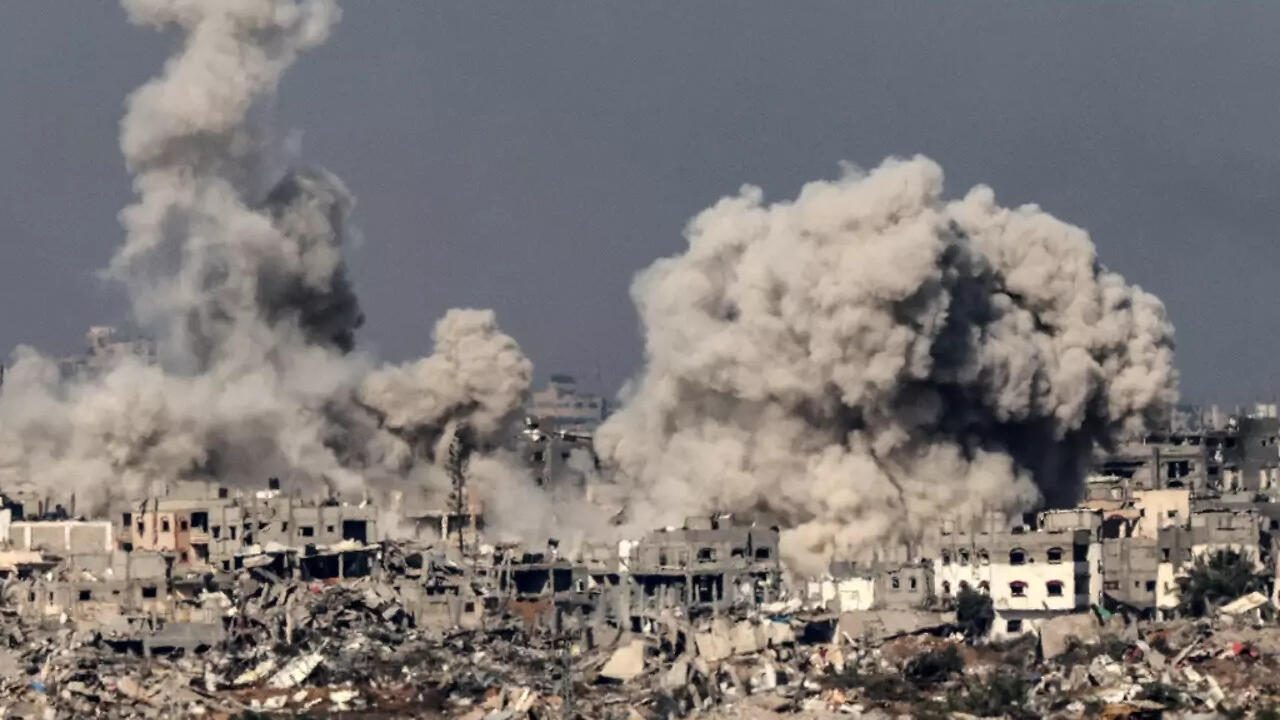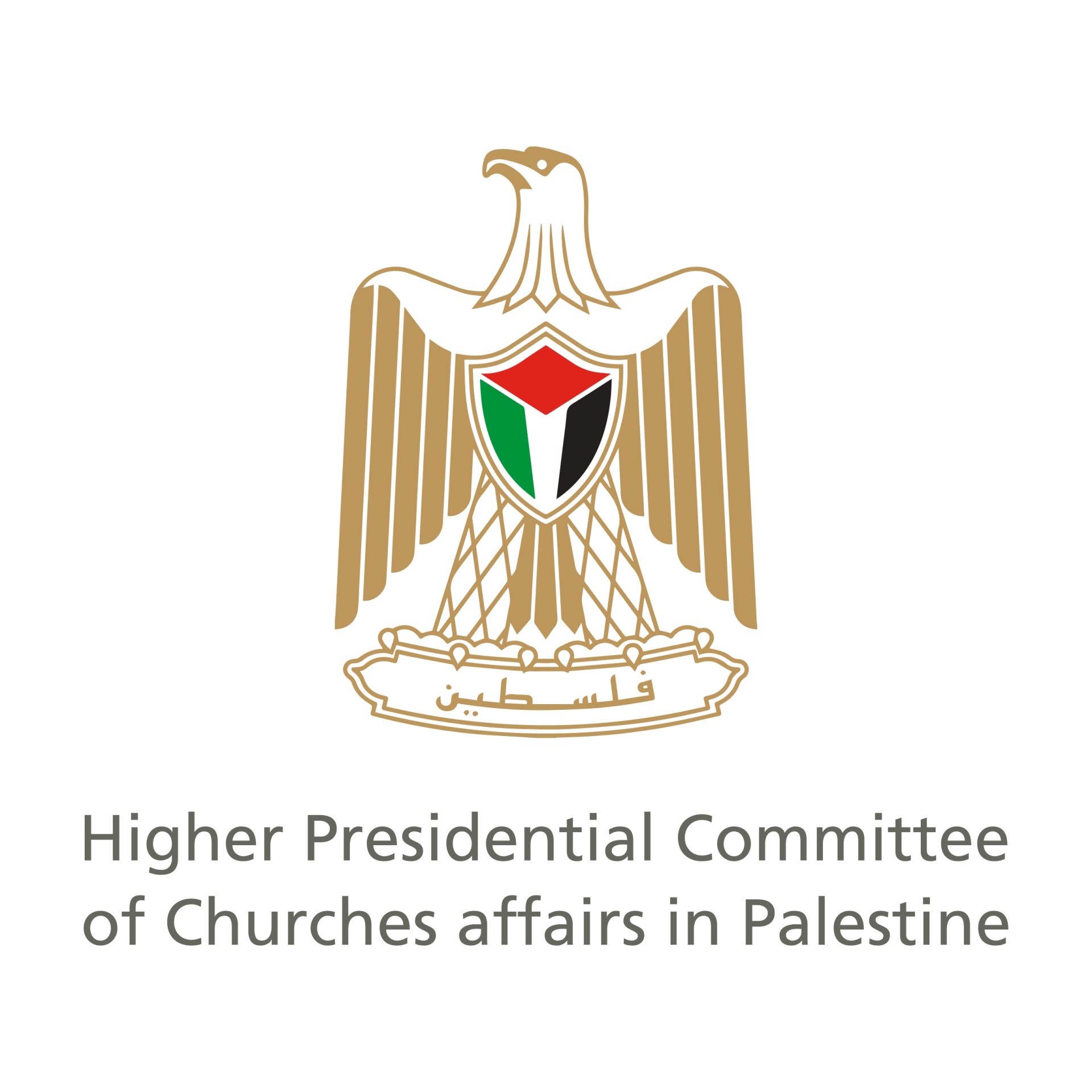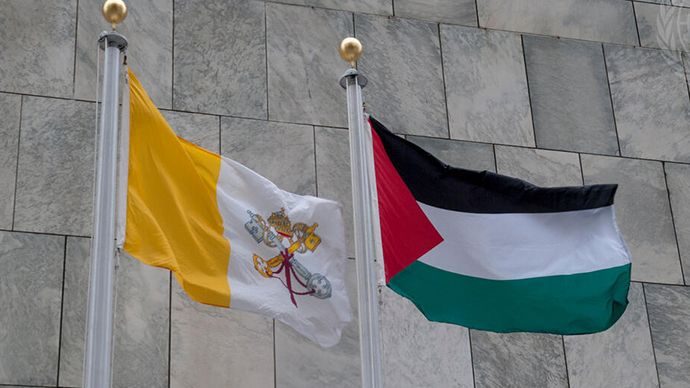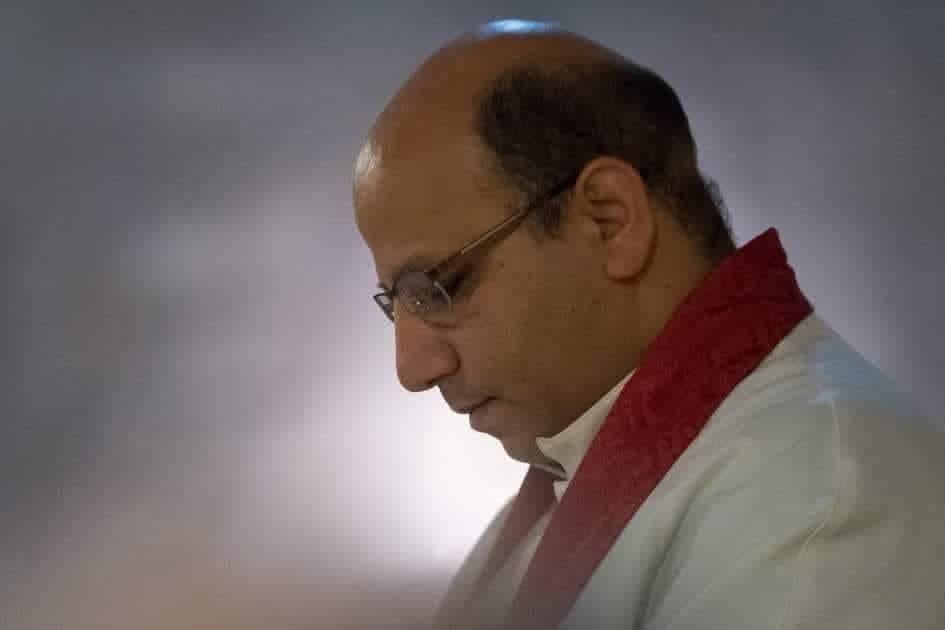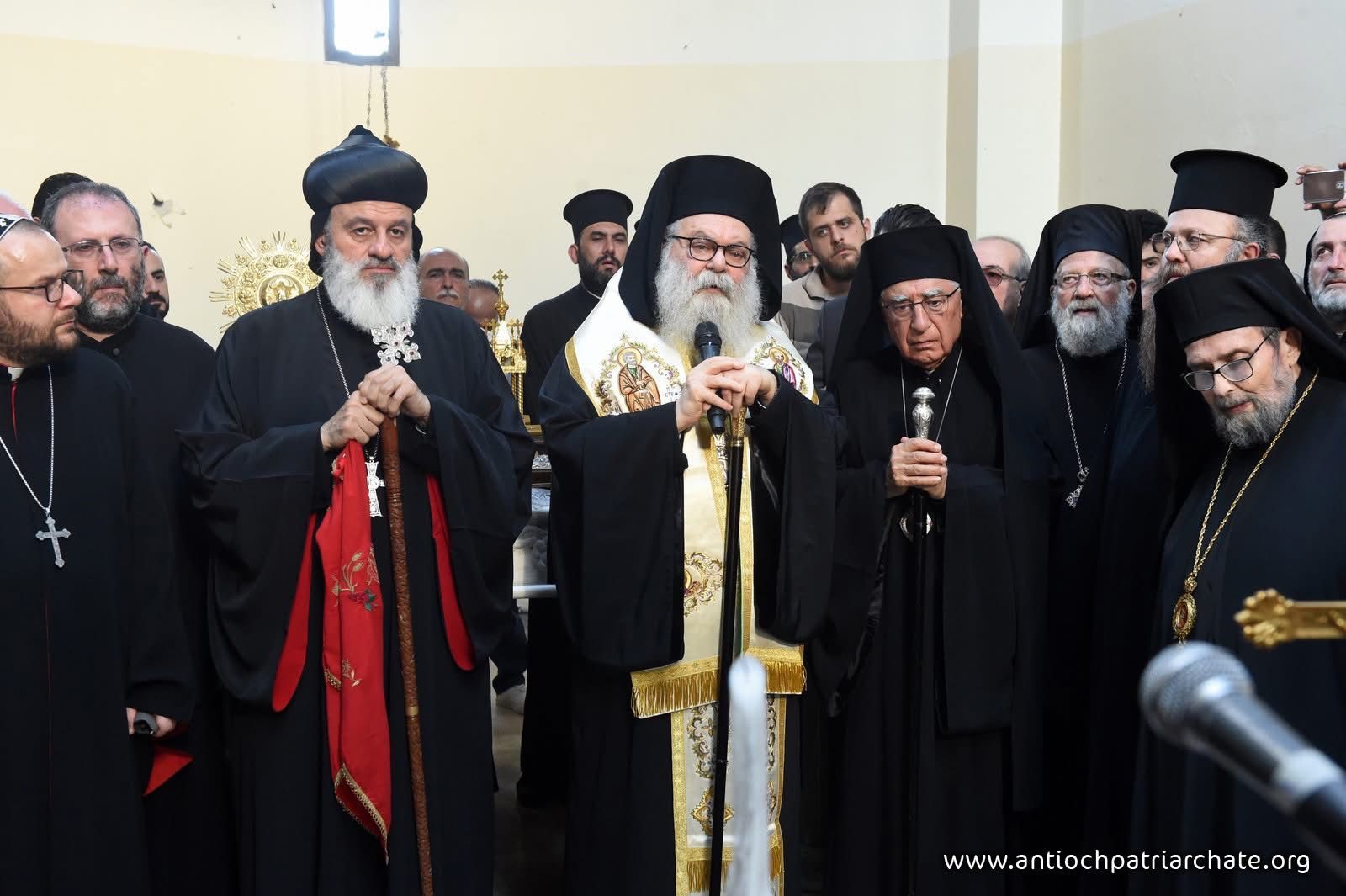What are the challenges in terms of daily living conditions under occupation?
Dr Azar: In Jerusalem there are many issues, but a major challenge is the attacks against Christians by extremist Jewish groups. We are attacked not only because we are Palestinians but also because we are Christians. The Israeli police tell us there are approximately 40 cases of spitting on clergy each day, and this is only within the small radius of Jerusalem’s Old City. The police tell us also that it is unacceptable to them, but the message we are getting on the streets is that we are not welcome here. I wonder, what type of life is this? This is a big challenge. The attacks have intensified with the extremist government now in place in Israel. World churches are present everywhere only as much as Christians remain in the Holy Land, so Christian presence must be protected. We do not want to see Christian cemeteries vandalized, and we want freedom of worship and unimpeded access to holy sites.
What gives you strength amidst so much adversity?
Dr Azar: Our faith gives us strength, and had it not been for the word of Jesus we would not be here today because it empowers us and strengthens our resolve. Hope comes from the Gospel, and we are here only because we have hope and we believe in God. Hope stems from the knowledge that God is with us. In addition, solidarity from churches the world over gives us hope. We need to be united, and to stop thinking in terms of denominations.
What should be the role of the church in this conflict?
Dr Azar: In Jerusalem we have a big problem with ID confiscation and the revocation of residency rights. I do not want to lose Christians, and I want Christians to stay in Jerusalem. If this problem is not addressed, the number of Christians will continue to decline. Church leaders around the world are called upon to intervene on this issue. We try to do housing projects and this should be a priority. If there is no housing, the young will leave. Housing is a major challenge for Christians in Jerusalem. Since the war started on 7 October 2023, 157 Christian families left the West Bank, and this is a bad sign for the future.
What is needed to break the current circle of violence?
Dr Azar: We are at a critical moment, and the time has come to put Christian presence in Jerusalem as the top priority. The Bible tells us to love your neighbor as yourself, but how can there be love if your Christian neighbor disappears? Only through Christian witness and service we can spread the message of love and inclusion towards other religions. If there are no Christians to uphold the message of the Bible, the message of love across religions will disappear. Therefore, we must begin by protecting Christian presence.
What is your role with the WCC Ecumenical Accompaniment Programme in Palestine and Israel?
Dr Azar: I am co-moderator of the WCC Ecumenical Accompaniment Programme in Palestine and Israel’s International Reference Group, and I am on the Advisory Board of the Jerusalem Liaison Office. The WCC Ecumenical Accompaniment Programme in Palestine and Israel was created at the request of church leaders in the Holy Land, and it is a valuable project that speaks with a Christian voice. I want to see the programme grow and continue as a voice of justice.
How do you see the future role of the WCC Ecumenical Accompaniment Programme in Palestine and Israel?
Dr Azar: The WCC Ecumenical Accompaniment Programme in Palestine and Israel has been doing a great job since 2002, but we need to reach out and to include more countries. The WCC Ecumenical Accompaniment Programme in Palestine and Israel alumni network must become a reality, as we need to be seen everywhere and with a strong voice. I travel to many countries around the world, and quite often I am greeted by former ecumenical accompaniers. I want to see the former ecumenical accompaniers assembled in one network. The WCC Ecumenical Accompaniment Programme in Palestine and Israel abroad must be joined together in a stronger way. Former ecumenical accompaniers are eager to come together, and we have no less than 2,000 of them.

